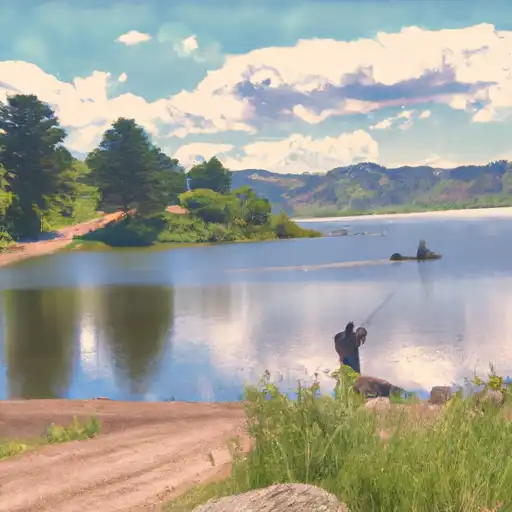2026-03-05T18:00:00-07:00
The National Weather Service in Denver has issued a Red Flag Warning for wind and low relative humidity, which is in effect from noon to 6 PM MST Thursday. The Fire Weather Watch is no longer in effect. * AFFECTED AREA...Fire Weather Zones 241, 246 and 247. * TIMING...From noon to 6 PM MST Thursday. * WINDS...South 10 to 20 mph with gusts up to 30 mph. * RELATIVE HUMIDITY...10 to 15 percent. * IMPACTS...Conditions will be favorable for rapid fire spread. Avoid outdoor burning and any activity that may produce a spark and start a wildfire.
Summary
Total streamflow across the
Fraser River
was last observed at
6
cfs, and is expected to yield approximately
12
acre-ft of water today; about 86%
of normal.
Average streamflow for this time of year is
7 cfs,
with recent peaks last observed
on
2014-05-31 when daily discharge volume was observed at
2,549 cfs.
Maximum discharge along the river is currently at the
Fraser River Blw Crooked Cr At Tabernash Co
reporting a streamflow rate of 49.3 cfs.
This is also the highest stage along the Fraser River, with a gauge stage of
3 ft at this location.
This river is monitored from 3 different streamgauging stations along the Fraser River, the highest being situated at an altitude of 9,539 ft, the
Fraser River At Upper Sta.
15-Day Weather Outlook
River Details
| Last Updated | 2026-03-04 |
| Discharge Volume | 12 ACRE-FT |
| Streamflow |
6.3 cfs
+0.2 cfs (+3.28%) |
| Percent of Normal | 86.42% |
| Maximum |
2,549.0 cfs
2014-05-31 |
| Seasonal Avg | 7 cfs |
River Streamflow Levels
| Streamgauge | Streamflow | Gauge Stage | 24hr Change (%) | % Normal | Minimum (cfs) | Maximum (cfs) | Air Temp | Elevation |
|---|---|---|---|---|---|---|---|---|
|
Fraser River At Upper Sta
USGS 09022000 |
2 cfs | 0.48 ft | -3.33 | |||||
|
Fraser River At Winter Park
USGS 09024000 |
5 cfs | 0.74 ft | 6.05 | |||||
|
Fraser River Blw Crooked Cr At Tabernash Co
USGS 09033300 |
49 cfs | 3 ft | -3.52 |
Seasonal Discharge Comparison
Maximum Streamflow Discharge
Streamflow Elevation Profile
The Fraser River is the longest river within British Columbia, Canada, rising at Fraser Pass near Blackrock Mountain in the Rocky Mountains and flowing for 1,375 kilometres (854 mi), into the Strait of Georgia at the city of Vancouver. It is the 11th longest river in Canada. The river's annual discharge at its mouth is 112 cubic kilometres (27 cu mi) or 3,550 cubic metres per second (125,000 cu ft/s), and it discharges 20 million tons of sediment into the ocean.

 Granby Lake
Granby Lake
 Meadow Creek Reservoir
Meadow Creek Reservoir
 Monarch Lake
Monarch Lake
 Shadow Mountain Reservoir
Shadow Mountain Reservoir
 Watanga Lake - IPWA
Watanga Lake - IPWA